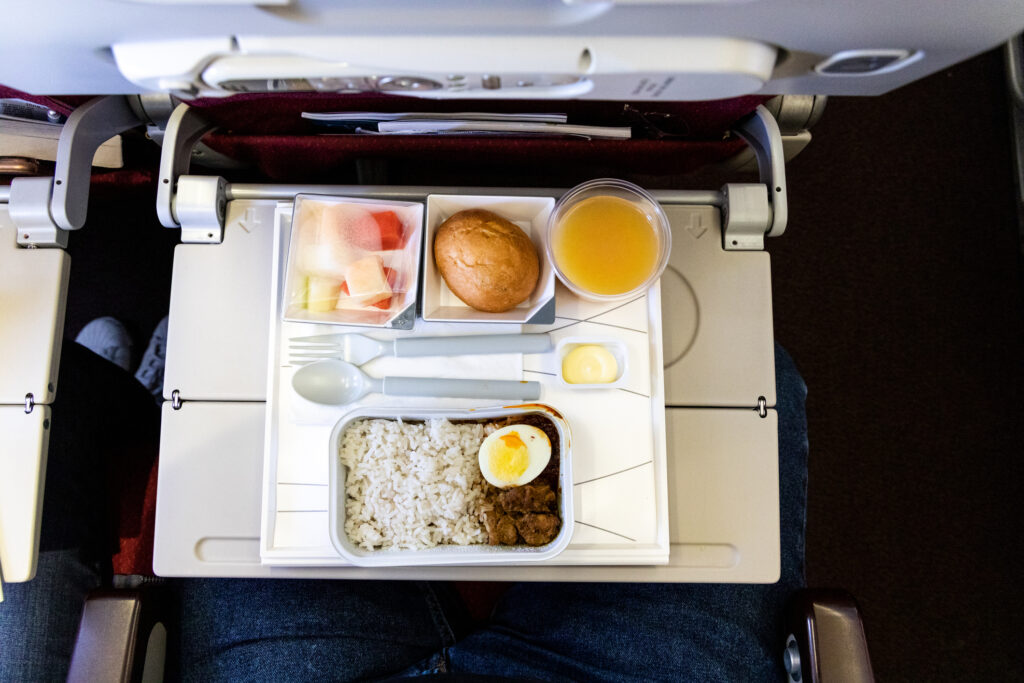Our performance tours offer a fantastic way to explore new destinations with the comfort of a planned itinerary and friendly company. But for some of your ensemble members with dietary restrictions, the excitement can be tinged with worry. “Will I find food I can eat?” Below are some helpful tips to help plan for restrictions.

Before your Trip
- Communication is Key: Have your ensemble be upfront about their restrictions during the planning process. Provide details about their needs, whether it’s vegetarian, vegan, kosher, gluten-free, dairy-free, or a specific allergy. it’s best to start collecting this information early on so it’s ready for our team when requested.
- Doctor’s Note (for Allergies): For severe allergies, a doctor’s note translated into the local language can be helpful, especially if traveling abroad.
- Always Be Safe: pack some safe alternative food options, extra travel money should you feel more comfortable ordering something else and be sure to bring medications in case of an emergency. (research if your specific medications are allowed when traveling)
- Readiness for any situation: adding onto the tip above – while we strive to accommodate everyone, a certain level of readiness is essential. There may be days with limited options (think air or bus travel) or menus and restaurant styles where we can’t control how they prepare their meals (think cafeterias, non-kosher restaurants, or self-serve layouts). It’s always best to be ready, so again pack some alternatives and travel money just in case.

On Your Trip
- Communicate with your Guide: While we give this information to your guide before you tour – It’s always nice to touch base and remind them about your dietary needs. They can be your local advocate when communicating with restaurants.
- Ask Questions and Talk to your Wait Staff: Just like anywhere when you have a restrictive diet or allergy it’s always good practice to remind the wait staff of your dietary needs. Don’t be shy about inquiring about ingredients while you are on your trip. We always inform restaurants and hotels about allergies and restrictions but can never fully guarantee that they will have a viable substitute. in our experience most restaurants can offer an alternative so it’s always best to check.
Understanding Airline Meal Options: A Passenger’s Guide

Many travelers rely on airline meals to meet their dietary needs, whether due to personal preferences, religious beliefs, or medical restrictions. This guide will help you navigate your options and ensure a smooth flight experience.
Severe Allergies: While airlines can make a note of severe allergies like nuts, they may not be able to guarantee a completely allergen-free meal on every flight. Here’s what to keep in mind for passengers with allergies or dietary restrictions:
- Severe Allergies: For passengers with severe allergies (like nuts), it’s still important to notify the airline. This gives them a heads-up and allows them to make announcements about allergens potentially being present on board.
- Limited Options for Common Ingredients: If a passenger has allergies to common ingredients (like onions, melons, or bananas) that might be found in standard meals, airlines unfortunately cannot create special meals to exclude them.
- Packing Your Own Snacks: In these cases, it’s recommended that passengers bring their own snacks or meals that cater to their specific dietary needs. This ensures they have safe and familiar options available throughout the flight.
Important Meal Considerations:
- Multiple Requests: Airlines typically allow only one special meal selection per passenger. So, when choosing between options like gluten-free and lactose-free, prioritize the more critical restriction (e.g., gluten-free).
- Specific Choices and General Preferences: Most airlines cannot fulfill requests for specific dishes like “chicken only” or “no tomatoes or onions.” These options may not be available on your flight and most in-flight meals are packaged ahead of time so items cannot be removed or substituted when it is considered a main ingredient to the meal.
- Religious Requirements: If your dietary needs stem from religious beliefs (e.g., avoiding beef), request a vegetarian meal to ensure all meat options are excluded. Airlines cannot predict the specific type of meat served on a particular flight.
- Seafood vs. Shellfish: While rare, airlines might offer seafood like salmon or halibut. Shellfish, however, is uncommon on most flights.
To further help clarify airline options below are some lists to reference.
What we can specify and what we see usually accepted by an airline:
- Vegetarian – not specified vegan or lacto-ovo, just vegetarian.
- Kosher
- Gluten Free
Requests we can enter, but may not get accepted, but sometimes do:
- Diabetic
- Lactose Free
- Bland Meal
Requests we can enter, but will more than likely get declined, except on specific airlines or routes:
- Baby Meal
- Child Meal
- Fish Meal
- Low calorie Meal
- Low salt meal
- Seafood meal
- Vegetarian Raw Meal
- And various specific religious or cultural designations such as Indian Vegetarian, Muslim, Asian Vegetarian meal, etc. These tend to be offered on more specific destinations.

